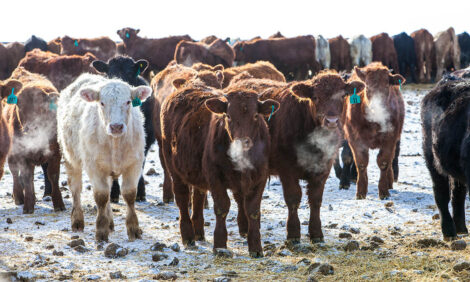



Resilience Vs Resistance
Kris Ringwall from the North Dakota Beef Extension commends the beef industry's resilience, but says that resistance to change will only prevent the industry moving forward, particularly where data collection is concerned. Resilience is that innate ability to bounce back and survive, and, in many ways, it’s a desire to return to what was. The cattle industry will pride itself on its resilience and capacity to take a hit, but survive through hard work.
Generally, the operational model is renewed, and the managerial motto that “if it worked before, it will work again” can be heard humming in the background. By this time, one should be asking if I am talking about resilience or if I have shifted to resistance.
Resilience is a good thing. In many respects, without resilience, there would not be much of a cattle industry.
On the other hand, resistance is not always such a good thing. For the right reasons, some resistance is proper. However, to keep what is in place, for no other reason than to resist change, means the end already has arrived.
So what’s the point? Change in the beef business is difficult. Documented change in the beef business at the managerial level to the point that a new business plan was instituted is even more difficult. Why is that? Again, resilience or resistance, are we just bouncing back to what we were and allowing our previous model to dictate tomorrow?
There is a certain amount of comfort in accepting how we produce beef through the visual and gut interaction that drives us for another day. On the other hand, are we being proactive and opening new doors for our beef enterprises? How do we know or determine that the track we are on is the right one or if we turned the corner correctly? Even more difficult, how do we guide the tweaking and steering of our beef enterprises from one decade to the next?
Unfortunately, there is a huge resistance within the industry to collecting the correct data. This is data that ultimately serves to properly feed managerial decisions and tweak business plans. The Dickinson Research Extension Center has switched cow enterprises recently. The shift is moving from a March calving enterprise to a May calving enterprise.
The resistance to the move has been interesting. Generally, it has been verbal and spiced with opinion. One thing is for sure: One feels vulnerable as resilience and the ability to bounce back disappear with change.
The old plan was removed. The most important internal challenge within the industry is how to develop a new plan that provides for a proper return to labor and management and the enterprises within. More importantly, in the absence of resilience, how does one evaluate the outcomes to know that the desired change was achieved?
If one is resting on significant gut feeling, verbal expressions and the various other contortions of human communication, then it’s time to move on.
The bottom line is that new data is needed. Did the center make the right change? The data will answer the question. The later calving offers some great opportunities. Were those opportunities clear and the appropriate outcomes measureable? The reason the center is going to later calving is to provide better documentation for the very questions that are being asked. It seems appropriate that a producer’s questions need to be addressed within systems that are relevant to his or her needs.
Was preliminary data available to add direction to the change? If one looks at the gross margin calculations, the opportunity seems to exist, but it needs to be validated by good data.
Unfortunately, current data sets are almost devoid of late-calving herds. With nothing to bounce back to, the center has a challenge. The answer will not happen overnight. Even if I wish one could write the whole picture in a few paragraphs, it will not happen. In reality, the whole picture can only be collected one piece at a time. Each piece has to be added to the puzzle slowly because not everyone is on the same page.
However, a piece of good data will steer the ship. For those who prefer gut feeling and using verbal expressions, they certainly are encouraged to swim alongside.


